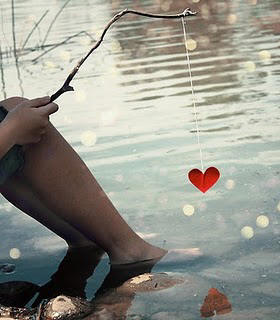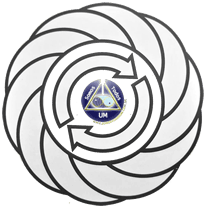How to deal with the emptiness inside
 Publicado por Bel Cesar
em STUM WORLD
Publicado por Bel Cesar
em STUM WORLDCompartilhe
English version by Fellipe Camarotto
[email protected]
I've dreamed I left to fly at night when I listened someone saying: Follow the fishes. Despite the darkness I could see on the way the turtles swimming and around them big fishes like sharks. I remember to have arrived from the ride feeling a great pleasure. I was able to explore the unknown with certainty of going and returning in safety. However, the dream goes on to an opposite direction, I start to experience series of situations in which I began to lose my space.
Newly arrived in a new apartment, with everything to arrange, I'm invaded by people trying to take my space: a neighbour who knew I had a piano and wish to play it and lot of people from other city who came to stay. Without knowing how to deal with an apparent innocent invasion of my space I go out to the street. I find a person speaking to a small audience. I sit down to listen. Then, she takes me to her office, a hard place to arrive. We had to go through narrows paths and down stairs very tights. Finally, I lie in a bed and it starts to pull me down, massaging my legs. I agree to deliver until I've taken by distressful felling of an acute loneliness. Loneliness without echo. Emptiness without sound. Frightened, with a strong pain in my chest, I ask myself: How long will it take? It doesn't answer. I wake up with certainty I need to heal once for all this emptiness: making me present to myself.
This dream presented a rare invite of being completely present in my loneliness. Without echo, without sounds, without names. Awaken I question myself if I can feel it again. However, I fell inspired to enter more in contact with this emptiness inside.
I found in the book In search of a Psychology of Awakening from the American Buddhist psychotherapist John Welwood a clear orientation of how to be active to accept and investigate an experience without a controller attitude. He clarifies that we need to follow steps.
The first comes to keeping an attitude of disposition to investigate, to face directly the experience and see in what consist. Hereafter comes the stage of recognize what is happening internally. That's it, I fell lonely and it hurts. At the moment we recognize a painful experience, we are already able to be with her a little bit more instead of denying and run away to another experience that appears less distressful. So we go gaining ground in our own property.
Once we allow ourselves to feel the experience, we are able to be in it without judging as right or wrong. From then on, we can feel this experience without the urgency of giving a meaning or doing anything. John Welwood points out: The important here is not much what we feel, but the act of opening ourselves to the feeling... The sensations themselves don't necessarily lead to wisdom, but the process of opening can lead. When we let to maintain distance from a sensation, she couldn't preserve its apparent solidity, which only crystallizes when we treat it as an object separate from us.
I recognize that this is a day to glue back in myself. I reflect a little more and find another book able to inspire me to be present in this inner solitude our encounter with life from the Zen Buddhist monk Thich Nhat Hanh. He writes: In some days we may feel empty, exhausted and sad, without being what we really are. In those days, even if we try to make contact with others, our efforts will be in vain. The more we try the most we fail. When it happens, we should stop trying to get in touch with what is outside of us and go back to get in touch with us, the 'being alone'. We should close the door to society, back to ourselves and practice conscious breathing, deeply observing what is happening within and around us. We accept all the phenomena we observe, saying 'hi' to them, smiling at them. We do well to perform simple things like walking or sitting meditation, washing clothes, cleaning the floors, making tea and cleaning the bathroom in the conscious state. If we do these things, we will restore the richness of our spiritual life. (P. 48).
We cannot stop the world, but we can stop ourselves. Stopping is not wasting time. It may seem paradoxical, but the ultimate goal to stop is generating power to move on. With more internal space we can move better!
| Consulte grátis | |||||
Leia Também
Como lidar com o vazio interior
Sobre o autor
 | |
Email: [email protected]
Visite o Site do Autor
Siga-nos:
NOSSO TRABALHO
Quem Somos
Nossa Missão
Colunistas
Cadastro Gratuito
Descadastramento
Depoimentos
Mapa do Site
Rss
Arquivo
Quem Somos
Nossa Missão
Colunistas
Cadastro Gratuito
Descadastramento
Depoimentos
Mapa do Site
Rss
Arquivo

© Copyright 2000-2025 SomosTodosUM - O SEU SITE DE AUTOCONHECIMENTO. Todos os direitos reservados.
Política de Privacidade - Site Parceiro do UOL Universa

